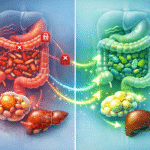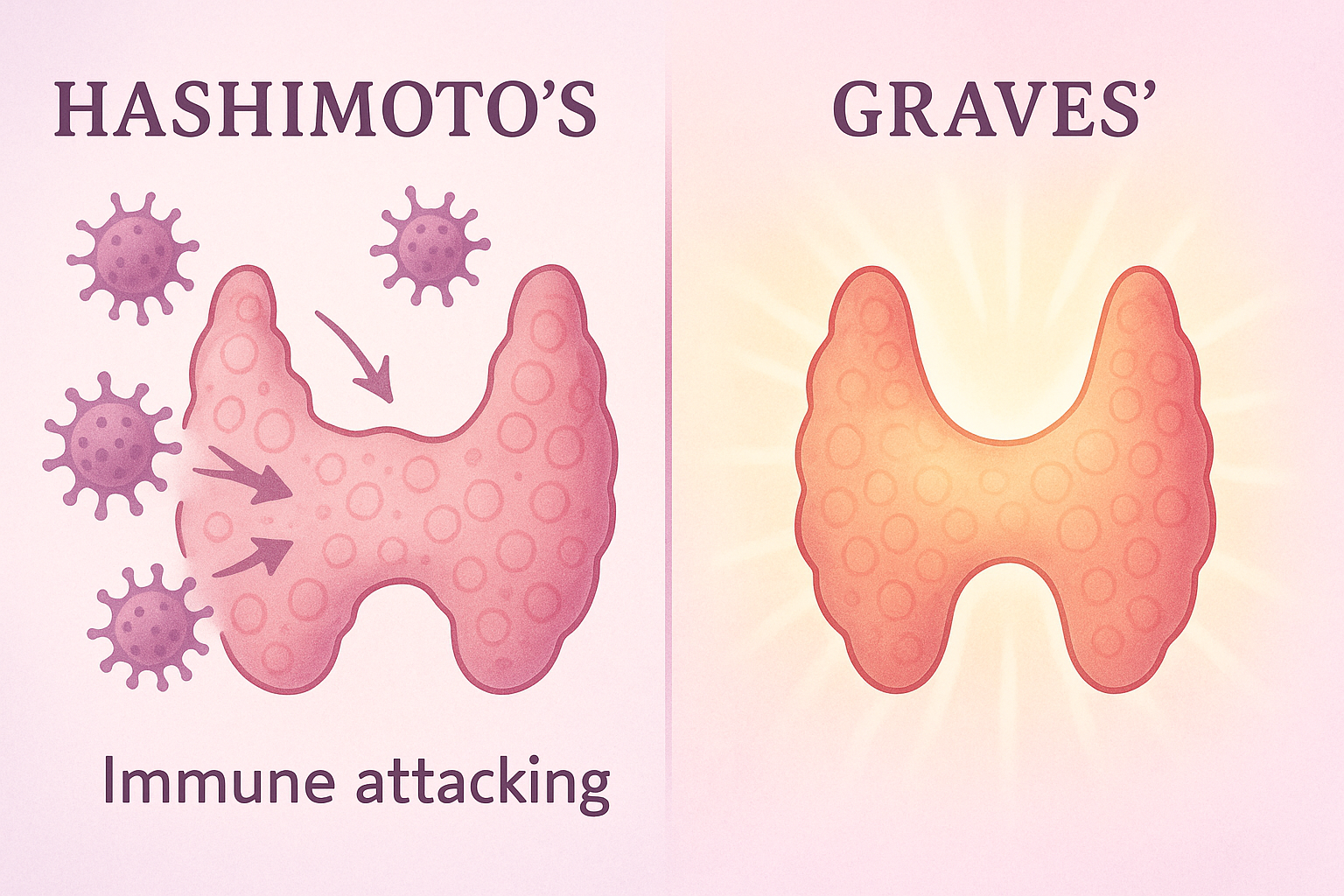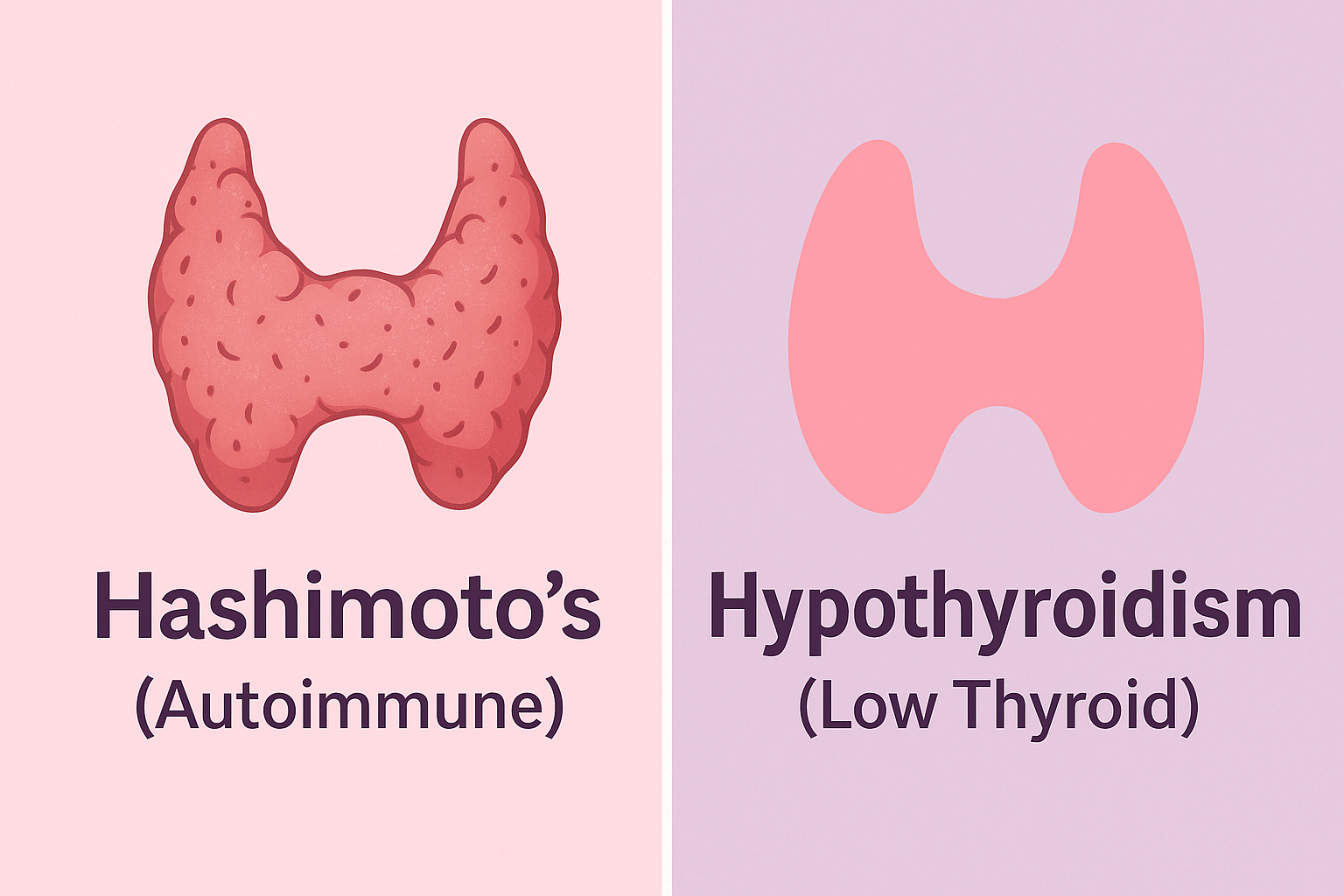Many women take birth control pills to manage menstrual cycles, acne, or contraception—without realizing how profoundly these hormones can influence the thyroid.
While the pill is effective for pregnancy prevention, it can also alter how your body produces, converts, and uses thyroid hormones. For women already dealing with fatigue, mood swings, or unexplained weight changes, the pill may make these symptoms worse—or even mask an underlying thyroid imbalance.
Let’s explore the connection between birth control pills and thyroid health, how to recognize if the pill is affecting your metabolism, and what you can do to maintain hormonal harmony.
💊 The Hormonal Basics: Estrogen, Progesterone, and the Thyroid
Most birth control pills contain synthetic versions of estrogen (ethinylestradiol) and progesterone (progestin).
While these synthetic hormones prevent ovulation, they also influence liver function, protein binding, and hormone metabolism—which can directly impact thyroid activity.
Your thyroid relies on a delicate feedback system between the hypothalamus, pituitary gland, and thyroid gland (the HPT axis). When synthetic hormones enter the picture, they can disrupt this communication, especially if estrogen levels rise too high.
🔗 The Connection Between Birth Control Pills and Thyroid Hormones
1. Estrogen Increases Thyroid-Binding Globulin (TBG)
Birth control pills raise TBG, a protein that binds thyroid hormones (T3 and T4) in the bloodstream.
When more hormones are bound, fewer are available for your cells—which can make you feel hypothyroid even if lab results look “normal.”
This is why some women develop symptoms such as fatigue, cold intolerance, or weight gain after starting the pill, even though their thyroid tests appear within range.
📖 Related: The Connection Between Estrogen Dominance and Thyroid Issues
2. Reduced Conversion of T4 to Active T3
The liver plays a major role in converting inactive T4 into active T3.
Because estrogen from the pill increases liver workload, conversion efficiency can drop—leading to sluggish metabolism and low energy.
You may notice brain fog, low motivation, or temperature sensitivity—classic signs of reduced T3.
3. Nutrient Depletion Affects Thyroid Health
The pill can deplete key nutrients required for healthy thyroid function, including:
- B vitamins (especially B6, B12, folate)
- Zinc and magnesium
- Selenium and iodine
Low nutrient levels impair hormone synthesis and conversion, further slowing thyroid activity.
Explore essential nutrients in 10 Essential Vitamins and Minerals for a Healthy Thyroid.
4. Progesterone Suppression and Hormonal Imbalance
Synthetic progestins in birth control are not identical to natural progesterone.
They can suppress natural progesterone production, creating a state of relative estrogen dominance—a condition linked to sluggish thyroid function and water retention.
⚠️ Common Symptoms of Birth Control–Related Thyroid Imbalance
If you’re on hormonal contraception and notice these symptoms, your thyroid may be affected:
| Physical | Mental/Emotional | Menstrual |
|---|---|---|
| Fatigue or sluggishness | Brain fog, low motivation | Irregular or lighter periods |
| Weight gain | Anxiety or mood changes | Low libido |
| Cold hands/feet | Trouble concentrating | Spotting between cycles |
| Hair thinning | Irritability | PMS-like symptoms |
Even mild hypothyroidism caused by increased TBG or low T3 can contribute to these patterns.
🧠 Lab Testing Tips for Women on the Pill
If you’re on birth control, standard thyroid tests can be misleading.
Ask your doctor for a comprehensive thyroid panel, including:
- TSH (Thyroid-Stimulating Hormone)
- Free T4 and Free T3
- Reverse T3
- Thyroid Antibodies (TPOAb, TGAb)
- Thyroid-Binding Globulin (TBG)
This helps identify if elevated TBG is “locking up” hormones—something routine TSH testing alone can’t detect.
🌿 How to Support Thyroid Health While Using Birth Control
1. Focus on Nutrient Replenishment
Counteract depletion with a nutrient-dense diet or supplementation:
- B6 & B12: for energy and hormone metabolism
- Zinc & selenium: for thyroid conversion
- Magnesium: for nervous system support
- Iodine: only under supervision, as it can be double-edged
2. Support Liver Detoxification
Your liver processes both synthetic hormones and thyroid hormones.
Help it function optimally with:
- Cruciferous vegetables (broccoli, kale, cauliflower)
- Lemon water and beetroot
- Limiting alcohol and refined sugar
See: Foods That Harm Thyroid Health (and What to Avoid)
3. Balance Stress and Cortisol
Chronic stress worsens thyroid suppression and estrogen dominance.
Use gentle stress-reducing techniques such as:
- Meditation or slow yoga
- Deep breathing before sleep
- Adaptogenic herbs (ashwagandha, rhodiola)
Learn more in Balancing Thyroid and Adrenal Fatigue Naturally.
4. Consider Non-Hormonal Alternatives
If you suspect the pill is affecting your thyroid, discuss non-hormonal options with your healthcare provider—such as copper IUDs, fertility awareness methods, or progesterone-only mini-pills (which have less estrogenic effect).
🧘 Lifestyle Habits for Hormonal Harmony
- Eat high-fiber meals to help clear excess hormones
- Get adequate sleep (7–9 hours) to reset cortisol and thyroid rhythm
- Avoid over-exercising or severe dieting—both can suppress T3
- Practice daily movement like walking or Pilates for steady metabolism
Explore more in Morning Habits That Support a Healthy Thyroid
🌸 Final Thoughts
Birth control pills can be a helpful tool—but they are not hormone-neutral.
For some women, they can mask or worsen thyroid dysfunction by increasing TBG, depleting nutrients, and suppressing natural progesterone.
If you’re experiencing thyroid-like symptoms while on the pill, get a full thyroid panel and consider supportive steps to rebalance your body. With the right nutrients, detox support, and lifestyle, you can maintain both reproductive and thyroid health.
❓ FAQs
- Do birth control pills affect thyroid hormones?
Yes. They increase thyroid-binding globulin (TBG), which binds hormones and reduces the amount of active thyroid hormone available to your body. - Why do I feel tired or sluggish on the pill?
Elevated TBG and reduced T3 conversion can lower metabolism, causing fatigue and low energy even with normal test results. - Can birth control cause hypothyroidism?
It doesn’t directly cause it but can mimic or worsen hypothyroid symptoms by lowering active thyroid hormone availability. - Do all types of birth control affect thyroid function?
Combined estrogen-progestin pills have the strongest effect; progesterone-only methods usually have less impact. - How long after stopping the pill does thyroid function normalize?
TBG and hormone levels often rebalance within 4–8 weeks, but full metabolic recovery may take 3–6 months. - Which nutrients should I supplement while on the pill?
B6, B12, folate, selenium, zinc, magnesium, and (if needed) iodine to support thyroid and energy metabolism. - Can the pill interfere with thyroid medication?
Yes. Women on thyroid replacement may require dose adjustments when starting or stopping the pill—consult your doctor. - How do I test thyroid function accurately while on the pill?
Request Free T3, Free T4, and TBG levels in addition to TSH for a complete picture. - Are there safer contraceptive options for thyroid balance?
Non-hormonal methods like copper IUDs or fertility awareness are gentler on thyroid metabolism. - What natural steps support thyroid health on birth control?
Nutrient-dense foods, liver support, stress management, and balanced sleep all help offset hormonal effects.
🔗 Related Articles
- The Connection Between Estrogen Dominance and Thyroid Issues
- How to Choose the Right Thyroid Supplement for You
- Balancing Thyroid and Adrenal Fatigue Naturally
- Foods That Harm Thyroid Health (and What to Avoid)
Protect Your Thyroid While on the Pill
Learn how to counteract the pill’s hormonal impact with evidence-based nutrients and thyroid-supporting supplements. Find out which blend fits your needs best.
Explore Thyroid Supplement Guide →







